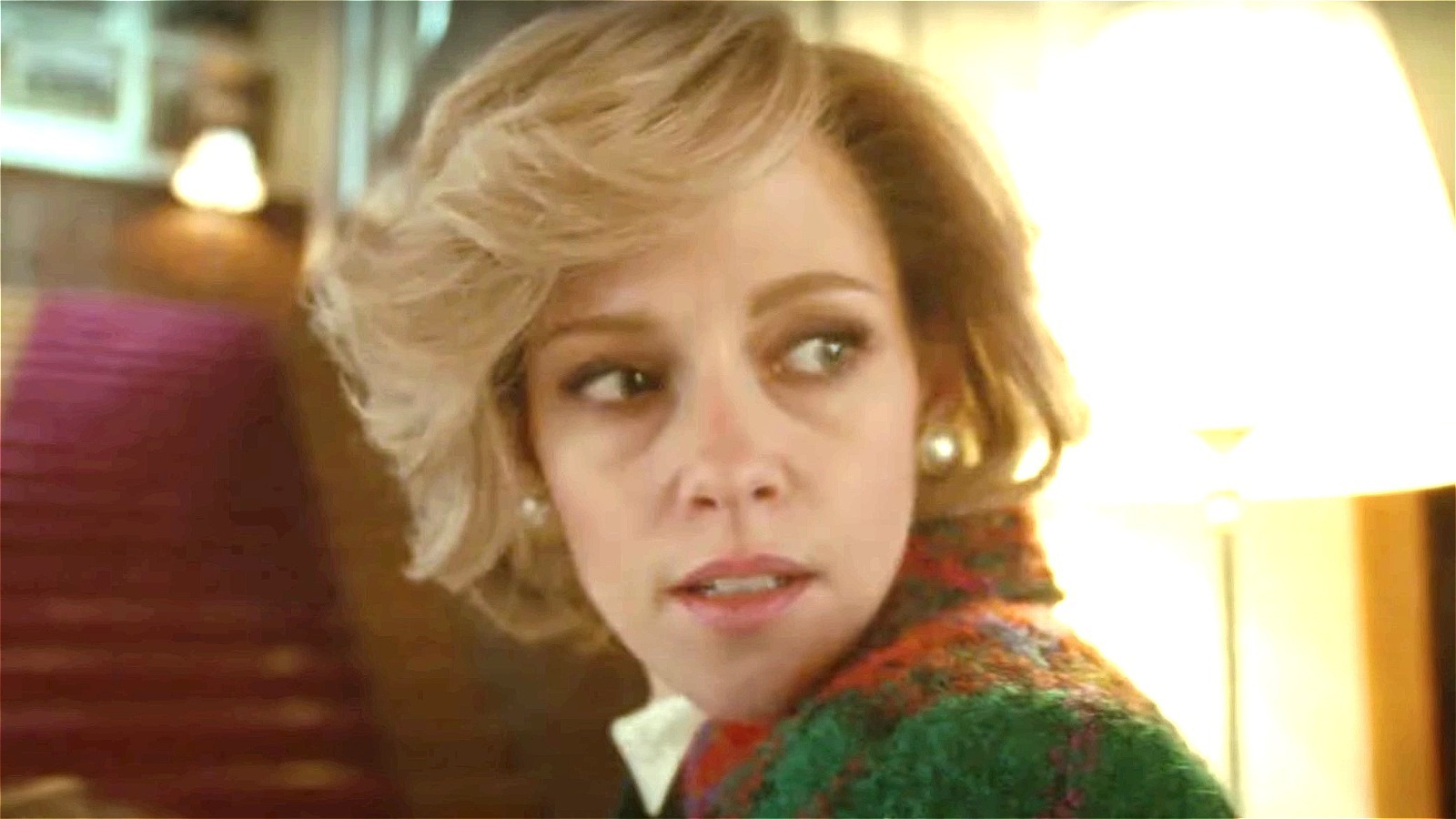The story of Diana, Princess of Wales is unavoidable right now. Sure, Diana has remained a perennial fascination of the British public ever since her death in 1997, but in 2021 we can’t seem to get enough of her on screen. First there’s her part in The Crown, played by Emma Corrin and Elizabeth Debicki. Then there’s Diana The Musical, a camp-looking Broadway musical which opened in 2019 and will appear on Broadway (and Netflix) next month. And last but least there’s Spencer, a film by Chilean auteur Pablo Larraín — whose Jackie centred Natalie Portman in a career-best turn as the titular Kennedy widow — starring Kristen Stewart in the lead role.
Rather than spanning several years, as might be expected from a more conventional script — we’re looking at you, Diana — the action, here, is contained to just three days, locked into the perspective of the people’s princess herself. But the timeframe is hardly the first thing that sets it apart from a cookie-cutter biopic: this film is, for all intents and purposes, abstract as fuck, and all the better for it.
A frosty landscape on, as the title card tells us, Christmas Eve. A procession of army-style vehicles — Land Rovers, police escorts, big gas-guzzling things — drive in inch-perfect synchronicity, down a country lane. They pull up to their destination: an expansive country manor with all the super ornate, upper-class trappings of old old money.

The film’s setting, Sandringham, is one of the British monarchy’s umpteen homes-away-from-home. Here, the final preparations are being laid in rigid, militaristic fashion, for a royal visit. One by one, the royals arrive, but one family member is conspicuously missing: K-Stew’s Diana.
Of course, she eventually rocks up in a convertible with the top down — after a couple of detours, including one to a fish and chip restaurant, which she enters to the sound of gawking jaws hitting the floor. It’s the last moment of liberation she’ll enjoy for a while.
If movie tropes are anything to go by, the first thing you do when you walk into prison is hand in your clothes. For Diana at Sandringham for Christmas, it’s taking a seat on weighing scales, a strange familial tradition for the holidays. Everything here seems like is a game of micromanagement: how much you weigh when you leave determines how much fun you had; schedules are written to the minute. Want to dress yourself? Not possible. So kicks off a very personal hell, rendered in grainy watercolour like a gorgeous picture book: fitting for something that calls itself, straight from the off, a “fable based on a true tragedy”.
And a tragedy so it is. In an interview for IndieWire just before Venice Film Festival, Pablo called the film an “upside down fairy tale”. It’s as much set within the corkscrew corridors of Diana’s spiralling mind as it is the claustrophobic, ornate halls of Sandringham: she speaks to both the ghost of Anne Boleyn and her dad’s old jacket, for fuck sake. Her suffering cuts the skin like a pair of wire cutters. Those not usually prone to sympathising with aristocrats whose jewellery cost more than a decade’s worth of London rent may even shed more than a solitary tear. We can eat the rich later.
K-Stew, you’ll be glad to know, absolutely kills it. The obvious impulse will be to cross-compare her with Emma Corrin, our other queen of the moment, but they stand-out for entirely different reasons. Where Emma’s performance is measured and subtle, Kristen goes all-out high-camp theatricalism. And Kristen evocation works so perfectly here because Pablo’s film is an unrestrained, psychological melodrama. The best films always boast a complementary relationship between performance and style, and well, here it is. Give her all the flowers, you cowards.
Undergirding the story of Diana Spencer is a history of patriarchal violence: women betrayed by hastily forgiven husbands, but whose own missteps are demonised to the hilt; by voracious, parasitic paparazzo, who will exploit anyone for a quick buck; nose-gazing in-laws with more concern for familial tradition than the wellbeing of their daughter-in-laws (and yes: Pablo does not lay off her maj. Good!).
The ending is rarely happy, as we know it wasn’t here. But, as Spencer encourages, Princess Diana is perhaps best remembered as that free spirit with the top down, roaring through country lanes, air catching the wisps of her blonde feathered hair. That’s Pablo Larraín’s fundamental encouragement, at least — this is more than just the story of a distant martyr.
Spencer will premiere in US theatres on 5 November. Follow i-D on Instagram and TikTok for more on movies.
